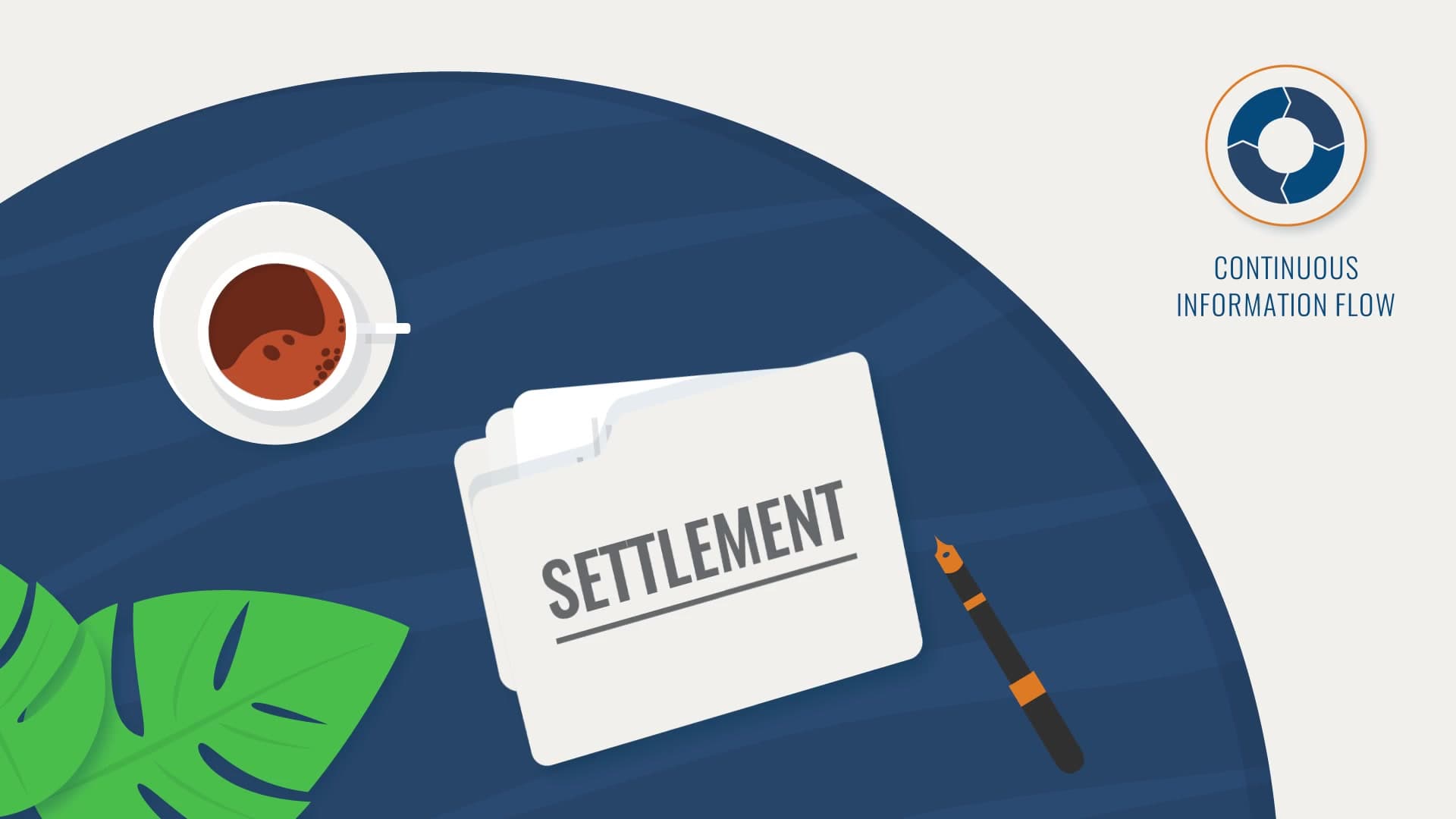

Battea Class Action Services provides 5 key insights regarding new partnership
Learn how Battea can help you unlock a fresh revenue stream through non-investment alpha.
According to SimCorp’s new Open Platform ecosystem partner Battea Class Action Services, LLC, there is more than USD 15 billion available to eligible institutional investors when their holdings are subject to a securities class action lawsuit.
Historically, only about one-third of eligible claimants successfully file for their share. The remaining two-thirds of investors are not only giving up non-investment alpha but allowing other investors to take their share.
Through SimCorp’s partnership with Battea, we are able to deliver the requisite data to Battea without any hands-on involvement from our clients. SimCorp clients are provided end-to-end securities class action monitoring, filing, and recovery, with no upfront cost or technology integration.
Bob Donahoe, Senior Vice President, Business Development, brings five key insights about how Battea can assist SimCorp clients.
1. What are class action lawsuits, and why should financial institutions file for these?
Securities class action lawsuits are brought on behalf of a group of investors who have suffered a financial loss in a particular security, such as equities, fixed income, or otherwise. Typically, the loss occurs because of fraudulent conduct, stock manipulation, or materially false statements made to investors in SEC filings, prospectuses, or earnings announcements.
In 2024 and beyond, we will witness high-volume payouts to investors who traded domestic and international equities, fixed income and derivatives, through class and collective actions.
Bob Donahoe
Senior Vice President, Business Development, Battea
When institutional investors' holdings are subject to a securities class action lawsuit, it is imperative that they take action to recover damages on behalf of their investors. Institutional investors enlist the services of Battea Class Action Services' comprehensive securities class action claims filing and settlement recovery service to ensure that they are fulfilling their fiduciary obligations on behalf of their investors.
2. What is the recovery process, and how does Battea's partnership with SimCorp help SimCorp clients?
Once a settlement has been determined, the Court approves a Plan of Allocation that details the specifics of each case and the eligibility requirements for settlement payouts. Battea's calculation methodology then considers the particular rules of each settlement or verdict. The Battea Claims Engine® is able to streamline the process and is the only vendor that provides full transparency of the client’s recognized loss amount via the Battea’s Client Portal®.
Through our partnership with Battea, SimCorp has established the required data files and implemented SFTP connectivity with Battea. Upon a signed services agreement, SimCorp and Battea take over the entire process allowing our clients to focus on other initiatives.

3. How much capital is available for eligible institutional investors, and how many do successfully file for their share?
While there is more than USD 15 billion available to eligible institutional investors, the landscape for U.S. class actions, international securities litigation and securities centric anti-trust litigation has evolved rapidly around the globe. Notably, in the last five-plus years.
Historically, approximately one-third of eligible claimants file successfully for their share. These settlement funds are distributed pro rata in their entirety. Therefore, by not adequately filing their claim, an institutional investor does not just leave money on the table, they are giving away their share to a competitor that does properly file.
In the recent OTC USD LIBOR Settlement, Battea represented 53 percent of the total settlement fund. In that same case, 83 percent of the total transactions submitted by “All Others”, which would include third-party filers, law firms, and self-filers, who are mainly Battea’s competitors, were rejected.
4. Class action lawsuit are common for US Equities. What about other geographies and security types?
Battea covers the full breadth of security types: global equities, fixed income, interest rate derivatives, credit, currencies, commodities, bonds, futures, options, FX, and credit default swaps. Also, Battea consistently follows all International (collective action) opt-in cases, notably Kobe Steel LTD in Asia, AVS Minerals LTD in Australia, Airbus, Petrobras, and UK FX in Europe, and the ongoing EURIBOR, EUROYEN, and OTC LIBOR litigations in North America.
5. Are there more cases that you are expecting in the coming years, and how do I get involved?
In 2024 and beyond, we will witness high-volume payouts to investors who traded domestic and international equities, fixed income and derivatives, through class and collective actions. As there are such significant sums available to investors, it is crucial to take timely action to establish a claim.
SimCorp clients wishing to file can send their data to Battea for a no cost analysis. Upon confirmation of eligibility, Battea will then file their claims and follow the entire lifecycle of the settlement process. Upon successful recovery, Battea will distribute the proper rewards and begin the lifecycle again. In some cases, the data sets can be used in multiple filings.
